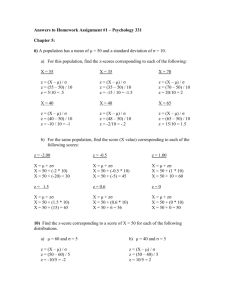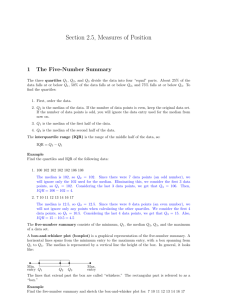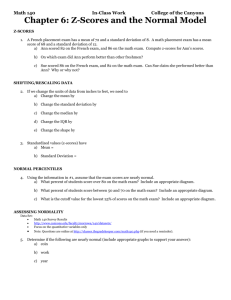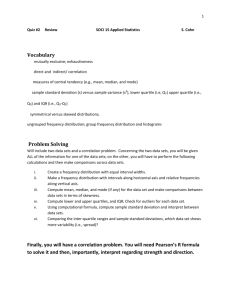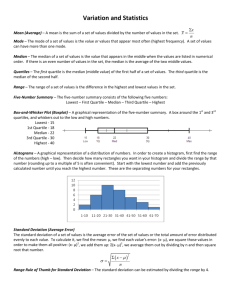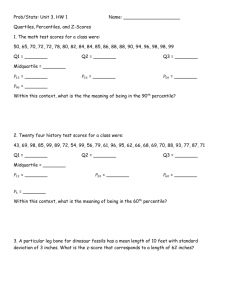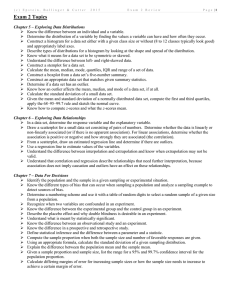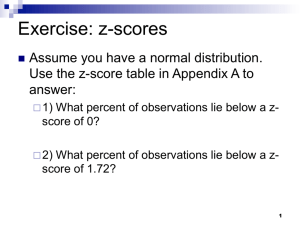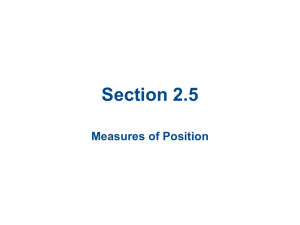Goals
advertisement
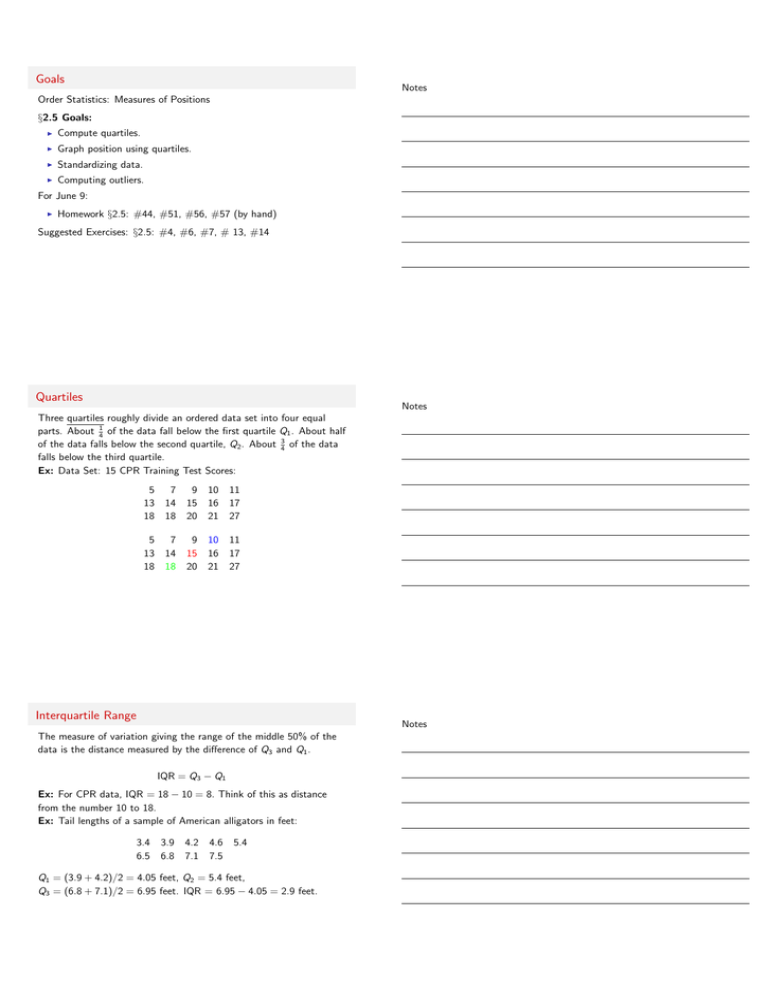
Goals Notes Order Statistics: Measures of Positions §2.5 Goals: I Compute quartiles. I Graph position using quartiles. I Standardizing data. I Computing outliers. For June 9: I Homework §2.5: #44, #51, #56, #57 (by hand) Suggested Exercises: §2.5: #4, #6, #7, # 13, #14 Quartiles Notes Three quartiles roughly divide an ordered data set into four equal parts. About 14 of the data fall below the first quartile Q1 . About half of the data falls below the second quartile, Q2 . About 34 of the data falls below the third quartile. Ex: Data Set: 15 CPR Training Test Scores: 5 13 18 7 9 10 11 14 15 16 17 18 20 21 27 5 13 18 7 9 10 11 14 15 16 17 18 20 21 27 Interquartile Range Notes The measure of variation giving the range of the middle 50% of the data is the distance measured by the difference of Q3 and Q1 . IQR = Q3 − Q1 Ex: For CPR data, IQR = 18 − 10 = 8. Think of this as distance from the number 10 to 18. Ex: Tail lengths of a sample of American alligators in feet: 3.4 6.5 3.9 4.2 4.6 6.8 7.1 7.5 5.4 Q1 = (3.9 + 4.2)/2 = 4.05 feet, Q2 = 5.4 feet, Q3 = (6.8 + 7.1)/2 = 6.95 feet. IQR = 6.95 − 4.05 = 2.9 feet. Five-Number Summary and Boxplots Notes The minimum data entry, Q1 , Q2 , Q3 , and maximum data entry together are called the five-number summary. Drawing a box-and-whisker plot (or box plot) is a descriptive statistics tool that highlights these features of the data set. Ex: For the CPR test scores: 1. The minimum is 5. 2. Q1 = 10 3. Q2 = 15 4. Q3 = 18 5. The maximum is 27. Five-Number Summary and Boxplots Five-Number Summary and Boxplots Give the five-number summary for the alligator tail lengths. Draw the box plot. Notes Notes z-score Notes A data value has a standard score or z-score that represents position from the mean measured by multiples of the standard deviation. Ex: A statistics test has a mean of µ1 = 63 and standard deviation σ1 = 7.0. A biology test has a mean of µ2 = 23 and standard deviation σ2 = 3.9. Student A scores a 75 on the statistics test. Student B scores a 25 on the biology test. Which student earned a higher standard score? Unusual z-scores Notes The Empirical Rule is applied to approximately bell-shaped distributions. We know that about 95% of the data lie within two standard deviations of the mean. Unusual values lie outside of two standard deviations. Data can be transformed into z-scores, and about 95% of the data lie within -2 and 2. Unusual z-scores Monthly utility bills have a mean of $70 and a standard deviation of $8. Find the z-scores that correspond to utility bills of $60, $71, and $92. Are any of these bills unusual? Explain. Notes
